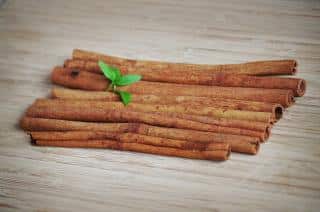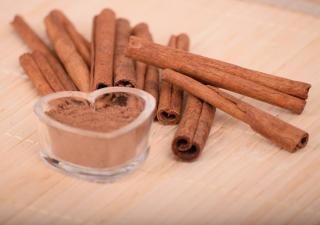

Commonly simply called cinnamon or “true cinnamon”, the Ceylon cinnamon is the inside bark of a tree belonging to the Lauraceae family. This tree, the Ceylon cinnamon tree, grows on the island of Ceylon, which is the former name of Sri Lanka.
Discovered over 4,500 years ago, it is among the most-sold spices in the world. It is essentially grown in India, Sri Lanka, China and Madagascar for its essential oil.
Unlike the China cinnamon that is often used in cooking in North America, Ceylon cinnamon is more common in European cooking, and it also bears many therapeutic benefits.
Which are these benefits and health results on the human body? How should cinnamon be used for effective results? Are there any contraindications in using cinnamon? Let’s have a look around…
The word cinnamon comes from Latin “canna“ which means “reed”. It is actually the bark of the Ceylon cinnamon tree, with scientific denomination Cinnamomum verum or Cinnamomum zeylanicum.
This tree is a very ancient plant, grown in tropical areas and its bark is sought after by many different native peoples.
Used even in the 3rd century before Christ to embalm the dead, ancient Romans and Greeks discovered various properties that it could exert: tonic, aphrodisiac, antiseptic and diuretic.
Use of Ceylan cinnamon slowly spread: bark, essential oil, powder, etc. are appreciated both in cooking and in herbal medicine.

Once this young bark is collected in thin strips, it is scrubbed and dried. The slivers then curl into rolls naturally as they dry, and take on a distinctive elongated shape: these are the cinnamon sticks. Sticks can be ground into powder before use, or processed to extract their essential oil which is very effective for natural healing.
Herbalists and scientists have discovered many active compounds that have a beneficial impact on the human body: immune, digestive, respiratory, uro-genital and cutaneous system benefits.
Ceylan cinnamon contains cinnamic aldehyde and eugenol that imparts its special flavor.
Thanks to its many properties, Ceylan cinnamon is said to have beneficial properties for the entire human body. Not only does it have an activity similar to that of insulin for diabetic persons, it also fluidizes the blood flow thus enhancing blood circulation towards the hands and feet. It also capable of lowering cholesterol rates in the blood.

It is stimulating to the immune system, and generally invigorates the body overall and is effective in fighting against tiredness. In case of digestive disorders, especially infectious diarrhea, Ceylan cinnamon essential oil has been proven to be an excellent intestinal antiseptic. It is also called for in the treatment of bloating, constipation, aerophagia, colitis, diarrhea, troubled digestion, lack of appetite, etc.
For ENT, Ceylan cinnamon essential oil is a good idea when confronted with bronchitis, colds and flu.
To benefit most from using Ceylan cinnamon, therapists recommend taking it as follows:
For uro-genital treatments, it is critical to follow the advice of a therapist when using cinnamon through oral intake.
Even in cases of frigidity or impotence, Ceylan cinnamon essential oil can pull you through: inhalation or massage on the lower back after dissolving it in plant-based oil.
Ingesting Ceylan cinnamon essential oil must absolutely be prescribed by a specialist (dosage, use).
As for topical application or massage, it is highly advised to never use the product pure. Always dilute it in enough plant-based oil, because it can cause skin to peel.
Ceylan cinnamon is contraindicated for children under 12 years of age, pregnant women, nursing women, and persons afflicted with skin intolerance. Essential oil is prohibited in bath water, inhalation and diffusers.